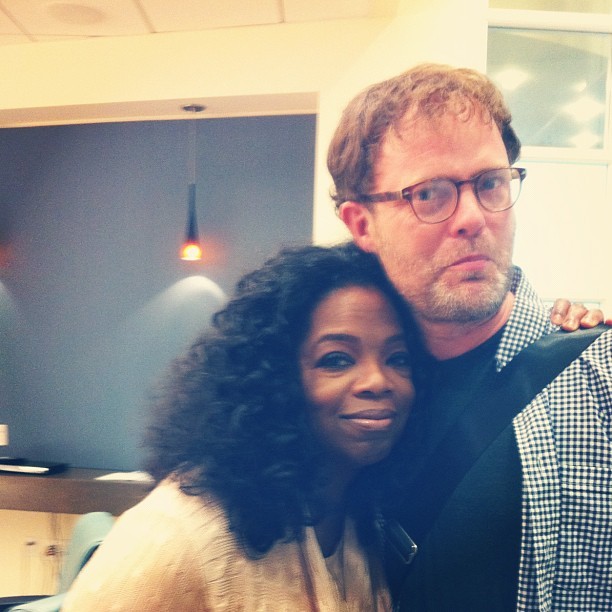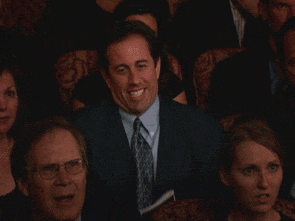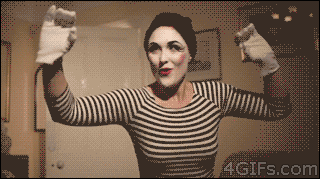[vicetv] Black men who fuck white mens wives while they watch.
- Thread starter ly2 from WF
- Start date
You are using an out of date browser. It may not display this or other websites correctly.
You should upgrade or use an alternative browser.
You should upgrade or use an alternative browser.
There's a lot of truth in what you're saying man.
We live in a sick fucked up world.
I much rather work for minimum wage and have a normal and healthy family life, than be stinky rich and lose my fucking mind like those guys.
I can see where you're coming from. There is this epidemic in Dominican Republic where the oil rich and filthy rich who reside there which are males between the ages of 16-40~ go to the ghetto parts to run trains on trannies. Not only them but a couple of the corrupt politics have been caught doing it too.
I know this because it's been on the news but I have this family friend who's son was a crossdresser and prostitute or whatever. It's a real sad story the shit he use to do. Anyways this gang killed him though and described how he killed him in court that his father had a heart attack and died in court. The gangbanger said that he shot him in the balls and he was crying for his mom which has been part of my family for decades before he shot him in the head.
So yes we live in a beyond fucked up world. It's to the point of no return. Like the girl who posted a video of her dog fucking her to compete with the girl who posted the video of her sucking her own tampon (this). I mean what are insecure attention seeking people going to do a decade from now? Not even a decade but 5 years from now? Dig up their grandparents graves and skull fuck them and post it on Facebook? Maybe skin a baby then it eat and tweet it? N O T H I N G C A N B E E X P L A I N E D
I just spent the last 2:33 watching a woman dry hump the Eiffel Tower.
Woman Rides The Eiffel Tower - YouTube
Thanks to this video, I learned that the Eiffel Tower is a "she". Is it sexist of me that I always assumed it would be a "he"?
I know this because it's been on the news but I have this family friend who's son was a crossdresser and prostitute or whatever. It's a real sad story the shit he use to do. Anyways this gang killed him though and described how he killed him in court that his father had a heart attack and died in court. The gangbanger said that he shot him in the balls and he was crying for his mom which has been part of my family for decades before he shot him in the head.
I don't mean to derail the thread but...
This just reminded me something. I visited a WWII museum where one of the exhibits told a story about a dying soldier and how he was crying for his mother as he was dying. It seems that dying men crying for their mothers is not that unusual
Where soldiers cried for morphine, their mothers - Morning Call
Where soldiers cried for morphine, their mothers
Robert E. Serafin on his porch in Lehigh Township, near Walnutport, in May… (Frank Wiese/Morning Call…)
May 27, 2002|An interview by David Venditta | Of The Morning Call
Robert E. Serafin guarded German prisoners of war in Colorado and Wyoming until the late summer of 1944, when the Army reassigned him as a hospital orderly.
The corporal from Plains, just north of Wilkes-Barre, landed in France in February 1945. Assigned to a mobile field hospital, he followed the U.S. 1st Army deep into Germany as the Nazi regime broke apart.
Serafin, who now lives in Lehigh Township, would become a career soldier and serve as a criminal investigator in South Vietnam and Thailand during the Vietnam War.
* * * * * * * * * * * * * * * * * * * * * * * * * * * * ** * * * * * * * *
We crossed the channel from England and landed at Le Havre in France, where they sent us to a camp. From there we went to Belgium, then into Germany.
My unit, the 84th Field Hospital, was a mobile Army surgical hospital, just like on the TV show "M*A*S*H." The first-aid stations were at the front, where the battlefield medics would do as much as they could to help the wounded.
Then came us, a few miles behind. We had the operating facilities to handle one or two hundred patients. These were the people who were severely injured. After we stabilized them, we'd fly them back to a general hospital. We were always looking to set up by a landing strip so we could evacuate them faster.
I was an orderly with the job of carrying bedpans, moving patients from their cots to the operating table and back again, putting up tents and taking them down, packing the equipment into trucks. The ward tents would hold 50 to 75 patients, mostly all young fellas who had grown up fast.
It was hectic, especially when we got a mass of casualties in. They were brought from the front in ambulances. We had to get these guys into the hospital as fast as we could. That's when time flew.
Thank God we had nurses. They calmed down the injured guys as only women can, with the soothing way about them. They took terrific care of the wounded, the amputees, trying to make them as comfortable as they could.
A lot of the guys were sedated. But the sedation would wear off and they'd groan, "Oh, give me morphine. Morphine, morphine."
There was one guy in a complete body cast from the neck down. He must have had a back injury and was in awful pain, and he was crying for his mother. I guess it was the thought of never seeing her again. I was standing near him, helpless. A nurse said, "He wants more morphine. Other than that there's nothing we can do for him."
I found out in Vietnam, too, that as soon as a guy would be in bad shape, he'd always ask for his mother. Whenever I heard that, it killed me inside.
We moved forward and forward, through Aachen, Cologne, Giessen, Gotha, Weimar, Jena. We heard artillery all the time, day and night, volleys of boom, boom, boom, boom, boom! And we'd see the flashes in the sky.
It was hell to live with, because you didn't know what to expect. I was only 22 years old, and scared.
When we were driving on the autobahn, we had to evacuate the trucks when a German plane strafed us and dig our noses in the ground. There weren't many enemy fighters around, because Americans controlled the air, but some were still up there.
Once I was walking in a farm field, and a guy called out: "Don't move!" I said, "What?"
"You're in a mine field."
I froze. I didn't know what to do. We had a lot of instances where German farmers would be plowing a field, and pow!
"Turn around," the guy told me. "Go on the same steps that you took."
Oh man, I was so scared, shaking like a leaf. It got awfully quiet. The guy who called to me didn't want to say too much to get me more excited. There were other people around, watching me.
I followed my footprints in the plowed earth, looking for these little probes that stick out of the ground. They were from Bouncing Bettys. You step on them and they have a trigger assembly and go up a few feet, explode and get you in the midsection.
Nothing happened. I had been 20 yards out in the mine field and made it back. But I shook for an hour after that.
Everybody at the hospital was busy -- orderlies, medics, technicians, pharmacists, surgical and medical nurses, surgeons, medical doctors. When we weren't working, we got something to eat, and slept. They used to keep our mess hall open all the time, because you ate when you could. There was always hot coffee and a hot meal.
I wrote home to my wife, Elaine, practically every day. She had graduated from Plains High School two years after me, in 1942, and we got married at the end of October that year, soon before I was drafted.
Even though I was in Europe for only six or seven months, the war left a lot of scars on my mind. One of them was Buchenwald, the concentration camp outside Weimar.
Buchenwald had been liberated, and Gen. Dwight Eisenhower, then supreme Allied commander, wanted as many GIs as possible to see it because there it was: why we were fighting.
So yes we live in a beyond fucked up world. It's to the point of no return. Like the girl who posted a video of her dog fucking her to compete with the girl who posted the video of her sucking her own tampon (this). I mean what are insecure attention seeking people going to do a decade from now? Not even a decade but 5 years from now? Dig up their grandparents graves and skull fuck them and post it on Facebook? Maybe skin a baby then it eat and tweet it? N O T H I N G C A N B E E X P L A I N E D
looooooooool. It seems that tampon girl got married yesterday to a guy who ate human poop. What a coincidence!
'Tampon Girl' Giovanna Plowman Married On Facebook To Dino Bruscia, Guy Who Ate Human Poop (GRAPHIC VIDEO)
Here is my take on this issue of cuckoldry and/or crossdressing (they appear to be intertwined)...
It has to do with growing up in an environment where masculinity was, to some degree, shunned or in an environment where a boy did not feel completely comfortable with expressing his masculinity.
Now, what kind of environment would this be common in? Most likely in broken up homes where the boy spends most of his time with his mother with little or no positive male role models around. To add to that, his divorced mother may even say horrible things about his father and men in general, which further forces the boy to repress his masculinity and feel resentful about it too.
So what happens when he his subconsciously taught that masculinity is bad and his father was a bad man? He starts to dislike the fact that he's a male and begins to identify more with his mother and with women.
It has to do with growing up in an environment where masculinity was, to some degree, shunned or in an environment where a boy did not feel completely comfortable with expressing his masculinity.
Now, what kind of environment would this be common in? Most likely in broken up homes where the boy spends most of his time with his mother with little or no positive male role models around. To add to that, his divorced mother may even say horrible things about his father and men in general, which further forces the boy to repress his masculinity and feel resentful about it too.
So what happens when he his subconsciously taught that masculinity is bad and his father was a bad man? He starts to dislike the fact that he's a male and begins to identify more with his mother and with women.
seems like only a small fraction of you watched this video - for the record, i think this shit is fucking disgusting and I would murder the motherfucker who laid a hand on the mother of my child.
the video is a fucking mockumentary. if you watch, it focuses on how disgusting, unsanitary and how pathetic these people are. the black "mandingos" are fucking loser outcast black guys that happen to be big and have large dicks - the white girls/guys are just fucking weirds
all of them are fat and old.
the video is a fucking mockumentary. if you watch, it focuses on how disgusting, unsanitary and how pathetic these people are. the black "mandingos" are fucking loser outcast black guys that happen to be big and have large dicks - the white girls/guys are just fucking weirds
all of them are fat and old.
the video is a fucking mockumentary. if you watch, it focuses on how disgusting, unsanitary and how pathetic these people are. the black "mandingos" are fucking loser outcast black guys that happen to be big and have large dicks - the white girls/guys are just fucking weirds
all of them are fat and old.
I don't think anyone needed to watch the video to know that.
I think that as a Black female I can speak for the entire "Sistahood" when I say

The only white girls I see walking with a black guy is the girls so ugly that white guys will never fuck her.
You should probably make some money so you can walk around in more affluent areas?
Oh and Heidi Klum says hi.

You should probably make some money so you can walk around in more affluent areas?
Oh and Heidi Klum says hi.

Not hating on Seal at all, but uh...didn't she leave him for her white bodyguard?
In your face. :banana_sml:Not hating on Seal at all, but uh...didn't she leave him for her white bodyguard?
You should probably make some money so you can walk around in more affluent areas?
I not talking about few.
Not hating on Seal at all, but uh...didn't she leave him for her white bodyguard?
He didn't say anything about staying together he simply stated he never saw any black men with attractive white women and I proved him wrong.







